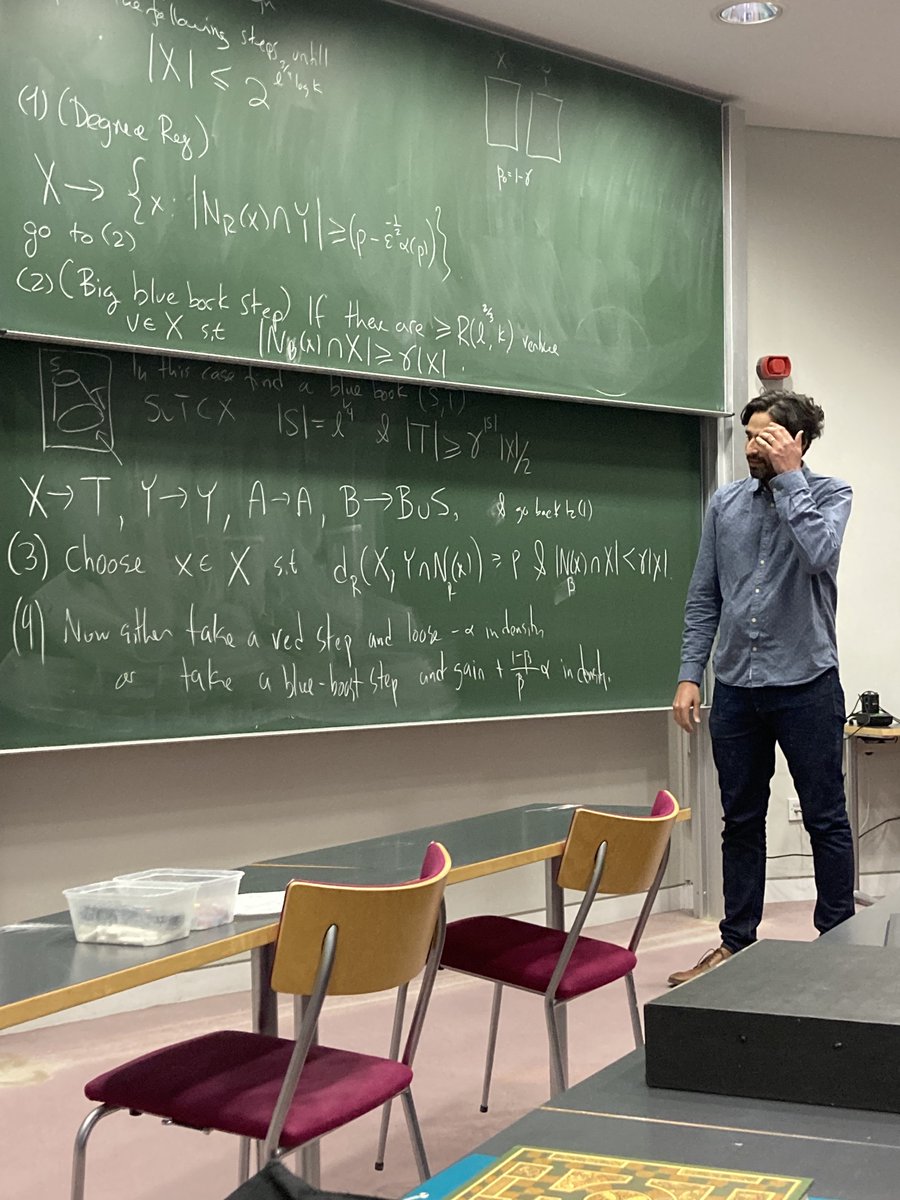Google DeepMind have produced a program that in a certain sense has achieved a silver-medal peformance at this year's International Mathematical Olympiad. 🧵
deepmind.google/discover/blog/…
deepmind.google/discover/blog/…
It did this by solving four of the six problems completely, which got it 28 points out of a possible total of 42. I'm not quite sure, but I think that put it ahead of all but around 60 competitors.
However, that statement needs a bit of qualifying.
However, that statement needs a bit of qualifying.
The main qualification is that the program needed a lot longer than the human competitors -- for some of the problems over 60 hours -- and of course much faster processing speed than the poor old human brain.
If the human competitors had been allowed that sort of time per problem they would undoubtedly have scored higher.
Nevertheless, (i) this is well beyond what automatic theorem provers could do before, and (ii) these times are likely to come down as efficiency gains are made.
Nevertheless, (i) this is well beyond what automatic theorem provers could do before, and (ii) these times are likely to come down as efficiency gains are made.
Another qualification is that the problems were manually translated into the proof assistant Lean, and only then did the program get to work. But the essential mathematics was done by the program: just the autoformalization part was done by humans.
As with AlphaGo, the program learnt to do what it did by teaching itself. But for that it needed a big collection of problems to work on. They achieved that in an interesting way: they took a huge database of IMO-type problems and got a large language model to formalize them.
However, LLMs are not able to autoformalize reliably, so they got them to autoformalize each problem many times. Some of the formalizations were correct, but even the incorrect ones were useful as training data, as often they were easier problems.
It's not clear what the implications of this are for mathematical research. Since the method used was very general, there would seem to be no obvious obstacle to adapting it to other mathematical domains, apart perhaps from insufficient data.
So we might be close to having a program that would enable mathematicians to get answers to a wide range of questions, provided those questions weren't *too* difficult -- the kind of thing one can do in a couple of hours.
That would be massively useful as a research tool, even if it wasn't itself capable of solving open problems.
Are we close to the point where mathematicians are redundant? It's hard to say. I would guess that we're still a breakthrough or two short of that.
Are we close to the point where mathematicians are redundant? It's hard to say. I would guess that we're still a breakthrough or two short of that.
It will be interesting to see how the time the program takes scales as the difficulty of the problems it solves increases. If it scales with a similar ratio to that of a human mathematician, then we might have to get worried.
But if the function human time taken --> computer time taken grows a lot faster than linearly, then more AI work will be needed.
The fact that the program takes as long as it does suggests that it hasn't "solved mathematics".
The fact that the program takes as long as it does suggests that it hasn't "solved mathematics".
However, what it does is way beyond what a pure brute-force search would be capable of, so there is clearly something interesting going on when it operates. We'll all have to watch this space.
@PaulsonJonathan So no cheating took place there, but the method that the program used to work out what it needed to prove was quite a bit more brute-force-like than the method a human mathematician would typically use.
• • •
Missing some Tweet in this thread? You can try to
force a refresh





